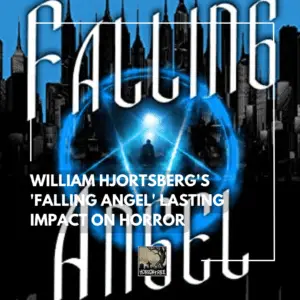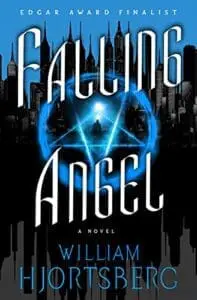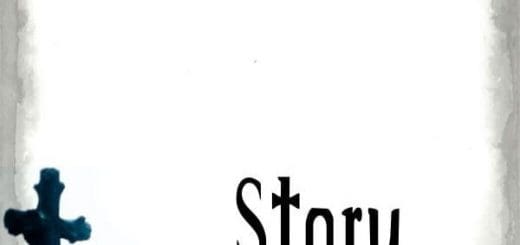William Hjortsberg’s ‘Falling Angel’ Lasting Impact On Horror
 In 1978 William Hjortsberg produced a novel based on one of those ideas so obvious that you wonder why it hadn’t been done before. The novel was Falling Angel, and Hjortsberg innovatively combined the hard-boiled detective genre with the horror one, or as Stephen King so aptly put it, the result was if “Raymond Chandler wrote The Exorcist.”
In 1978 William Hjortsberg produced a novel based on one of those ideas so obvious that you wonder why it hadn’t been done before. The novel was Falling Angel, and Hjortsberg innovatively combined the hard-boiled detective genre with the horror one, or as Stephen King so aptly put it, the result was if “Raymond Chandler wrote The Exorcist.”
Like skilled horror writers, Hjortsberg grounds the novels in realism. Harry Angel (every character has a unique and revealing name) is a private eye in 1959 New York who is hired by a bizarre character named Louis Cyphre to find a missing pre-World War II crooner named Johnny Favorite. Cyphre enigmatically wants to collect on a debt Favorite owed Cyphre for helping the singer with his career.
Like Dashiell Hammett, Hjortsberg uses super specificity as well as the slumming, poetic qualities of Raymond Chandler. Every character and setting, even what Angel eats, is minutely described, and like Philip Marlowe, Angel walks over graves and discovers a greater crime than what he is tasked with investigating.
The tropes of Hammett and Chandler are present. Angel is blackjacked by hired thugs and threatened by bent cops. But Hjjortsberg breathes new life into them with an admirably restrained sense of a lurking conspiracy. Religion abounds in Angel’s journey, and it is not the Sermon on the Mount version. Angel witnesses Voodoo rituals (in Central Park of all places) and Black Masses—the worship of Satan that always begins with a living sacrifice and ends with an orgy—are carried out in abandoned subway tunnels. The people Angel encounters during his investigation are stepped into Black Magic. Voodoo high priestesses, practicing witches, and Satanists populate the novel.
The more Angel learns about Favorite; the more sinister the latter is revealed to be. Favorite was obsessed with all forms of Black Magic, and those who knew him call him the most evil person they had ever met.
Still gory by today’s standards, the murders in Falling Angel are horrific. Hearts are ripped out of bodies, genitals cut off and inserted into mouths to those Angel interviews.
But everything remains in the realm of the possible until the novel’s jolting conclusion. To describe the ending would ruin the experience. Suffice it to say, Hjortsberg takes the standard noir conclusion of the protagonist being doomed from the start and turns it on its head.
In 1987, Alan Parker adapted Falling Angel into the film Angel Heart starring a young Mickey Rourke. Parker, who wrote the script, improves on the novel in several ways. Rourke is even more of a rat in a trap than in the novel. Rourke is plagued by nightmares and flashbacks where what he is remembering is just out of reach. Unlike Hjortsberg, who kept the novel in New York (the novel often reads as a travel brochure of Manhattan), Parker cleverly situated the film in New Orleans, the most appropriate setting for Black Magic. Cyphre, chillingly played by Robert De Niro, toys with Angel from the beginning, and creepily comes across as a father figure to Angel. What works the best in the film is that, unlike the novel, with its realistic base, there is no ambiguity about who Cyphre really is.
That said, Falling Angel holds up surprisingly well, and noir would never be the same after it. Not even James Ellroy, at his most perverted, approaches the horrors of the novel.
About The Novel:
 Edgar Award Finalist: The hunt for a vanished singer leads a detective into the depths of the occult in this “terrific” novel (Stephen King).
Edgar Award Finalist: The hunt for a vanished singer leads a detective into the depths of the occult in this “terrific” novel (Stephen King).
Big-band frontman Johnny Favorite was singing for the troops when a Luftwaffe fighter squadron strafed the bandstand, killing the crowd and leaving the singer near death. The army returned him to a private hospital in upstate New York, leaving him to live out his days as a vegetable while the world forgot him. But Louis Cyphre never forgets. Cyphre had a contract with the singer, stipulating payment upon Johnny’s death—payment that will be denied as long as Johnny clings to life. When Cyphre hires private investigator Harry Angel to find Johnny at the hospital, Angel learns that the singer has disappeared. It is no ordinary missing-person’s case. Everyone he questions dies soon after, as Angel’s investigation ensnares him in a bizarre tangle of black magic, carnival freaks, and grisly voodoo. When the sinister Louis Cyphre begins appearing in Angel’s dreams, the detective fears for his life, his sanity, and his soul.
Falling Angel was the basis for the Alan Parker film Angel Heart, starring Mickey Rourke, Robert De Niro, and Lisa Bonet.
This ebook features an illustrated biography of William Hjortsberg including rare photos from the author’s personal collection.
- About the Author
- Latest Posts












